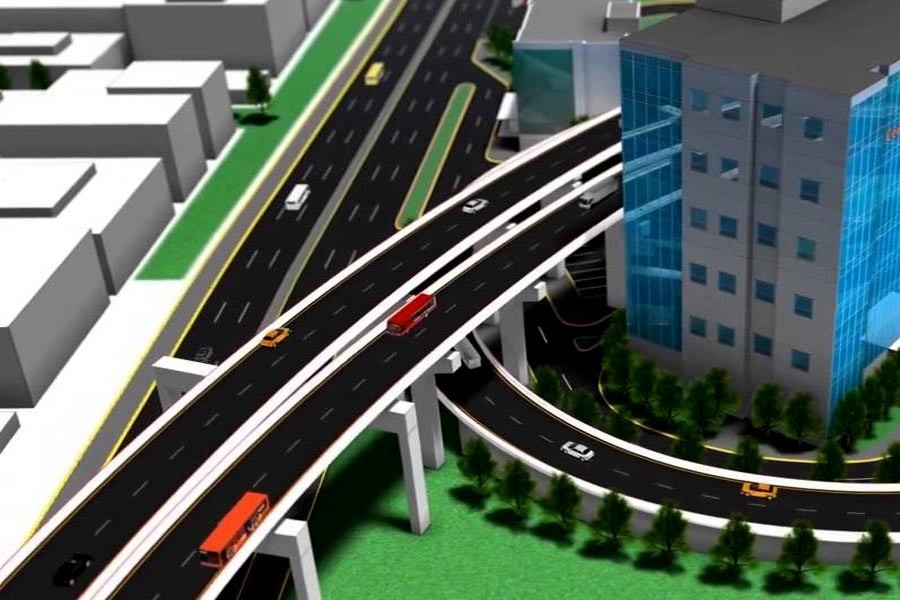
Published :
Updated :

New finance minister AHM Mustafa Kamal's first priority appears to be rolling back the deceleration in the implementation of the mega projects and initiate instead a process of acceleration. So he has decided to review the status of mega projects in order to identify the problem areas in a series of meetings with the line ministries and the executing agencies and devise solutions with them to the points at issue. The new minister has been in charge of planning earlier on, so that can bring to bear his knowledge on the question of expediting project implementation. His emphasis on effective development and quality execution of projects is well taken. Mega projects are essential parts of a fast developing economy warranting them at a certain stage of a country's development and therefore need to be implemented on time with full quality assurance to derive dividends from them. They are designed with estimated costs comprising foreign aid and loans and local counterpart finances with projected gestation periods for commissioning. The design, time line, cost estimate and completion date are supposed to be adhered to; and if there be any serious deviation from the plan, it can lead to time and cost overruns, as it often does, proving debilitating for the projects' timely and qualitative finish.
That said, the mere act of placing the prized projects on fast-track or high priority list by itself could not help matters unless the indigenous implementation capacity has been radically improved. It is common knowledge that from time to time stocks have been taken of progress or lack of it on the projects coupled with the shortfalls noticed in regard to meeting financial and physical targets on annual basis. In the past, it used to be a mismatch between utilisation of financial allocation and materialisation of physical targets. Now it seems that both in terms of utilisation of allocations and accomplishing physical targets, there has been regression. Hence there is a lowering of demand for allocation across a string of projects. The agencies which sought higher allocation during preparation of the Annual Development Programme (ADP) tend to demand lower foreign aid allocation on different projects halfway through the fiscal year.
The fallout is manifold impacting progress of mega projects adversely. In the first place, the foreign funds must have been garnered through hard negotiations requiring to be utilised in matching earnestness. Secondly, the unutilised foreign aid or loans inflate the already bulky pipeline bulge. Almost all high-profile, potentially efficacious infrastructural projects having the promise of sub-regional and inter-regional connectivity with a bridge-head link to Southeast Asia have been pushed on to a slow-lane implementation. Ranging from projects like Japan-funded MRT Line-6, ADB-supported Dohajzari-Cox's Bazar-Ghundum rail project, World Bank-funded Bus Rapid Transit to ADB-funded Joydevpur-Elenga and Elenga-Rangpur four-lane road - the list of slow-paced undertakings is long. A glaring instance of Bangladesh Railway having requested a drastically lowered availability foreign as well local funds to TK.5 billion and TK 287.5 million respectively relates to Dohazari-Cox's Bazar-Ghundum railway line.
Project aid is usually fraught with cluttered procurement and fund disbursement formalities. But that does not preclude the deficiencies pertaining to complicated project approval process and land acquisition difficulties. The problems are known, solutions have been oft-discussed, and what is left now is a fail-safe, focused and composite plan of action to turn a corner - energetically and uncompromisingly.


 For all latest news, follow The Financial Express Google News channel.
For all latest news, follow The Financial Express Google News channel.